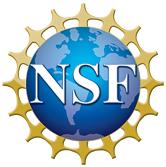 Last week the National Science Foundation (NSF), in partnership with the National Institutes of Health (NIH), U.S. Department of Agriculture and NASA announced $31.5 million in new awards to spur the development and use of robots that work cooperatively with people (known as co-robots). The awards mark the third round of funding made through the National Robotics Initiative (NRI), a multi-agency program launched in September 2012 as part of the Advanced Manufacturing Partnership Initiative, with NSF as the lead federal agency.
Last week the National Science Foundation (NSF), in partnership with the National Institutes of Health (NIH), U.S. Department of Agriculture and NASA announced $31.5 million in new awards to spur the development and use of robots that work cooperatively with people (known as co-robots). The awards mark the third round of funding made through the National Robotics Initiative (NRI), a multi-agency program launched in September 2012 as part of the Advanced Manufacturing Partnership Initiative, with NSF as the lead federal agency.
The 52 new research awards, ranging from $300,000 to $1.8 million over one to four years, advance fundamental understanding of robotic sensing, motion, computer vision, machine learning and human-computer interaction. The awards include research to develop soft robots that are safer for human interaction, determine how humans can lead teams of robots in recovery situations and design robots that can check aging infrastructure and map remote geographic areas. A full listing of the NRI investments made by NSF can be found here.
NSF’s investments in robotics explore both the technical and engineering challenges of developing co-robots and the long-term social, behavioral and economic implications of co-robots across all areas of human activities. As part of the initiative, NSF also supports the development of new methods for the establishment and infusion of robotics in educational curricula.
The Computing Community Consortium (CCC) has been at the forefront of NRI, hosting the original workshops for the robotics community in 2008 that led to the Robotics Roadmap.
From CCC Chair, Greg Hager:
This is a perfect example of the enormous success that can result when the computing community comes together to create a vision for CS research, and then distills it into a clear set of priorities that science funding leadership can act on. NRI has been truly transformative for the robotics community. Henrik Christensen, who led the CCC robotics roadmapping workshops deserves a huge amount of the credit for its enormous success.
Earlier this month, NRI announced its latest solicitation. The program expects to award up to $50 million in 2015. The upcoming full proposal deadline is January 14, 2015. This year the Defense Advanced Research Projects Agency and the Department of Defense have become new partners. Also, NIH has further focused their interest areas in NRI. NIH will not review proposals submitted on topics in surgical robotics and exoskeletons, in response to the NRI solicitation. In addition to hypothesis-driven research, NIH also supports non-hypothesis driven applications, which include technology-driven and problem-driven applications.
Currently, there is a #robothaiku social media campaign that the NSF Office of Legislative & Public Affairs (OLPA) has launched to generate excitement around robotics research. They are encouraging everyone to write a robotics haiku on Twitter and label it @NSF #robothaiku.










Trackbacks /
Pingbacks